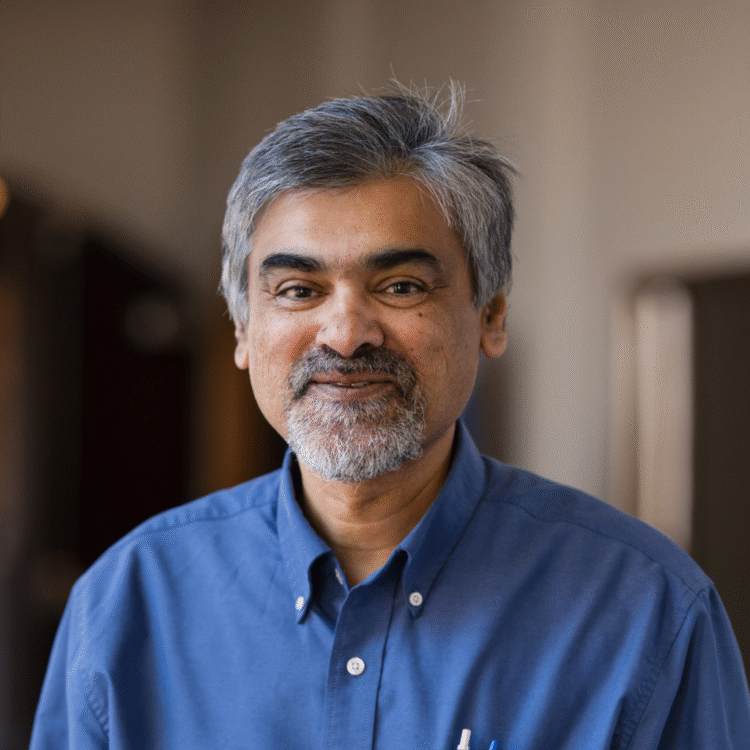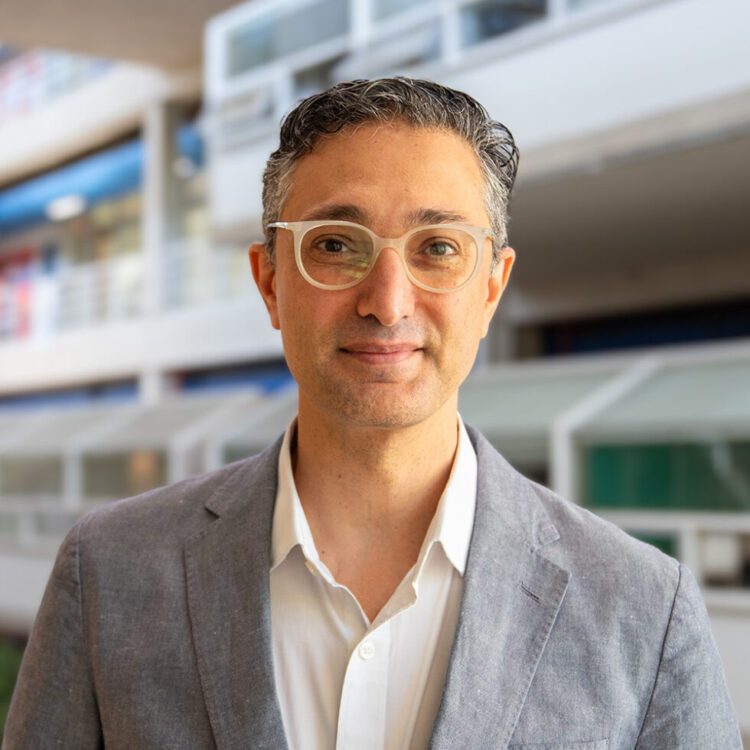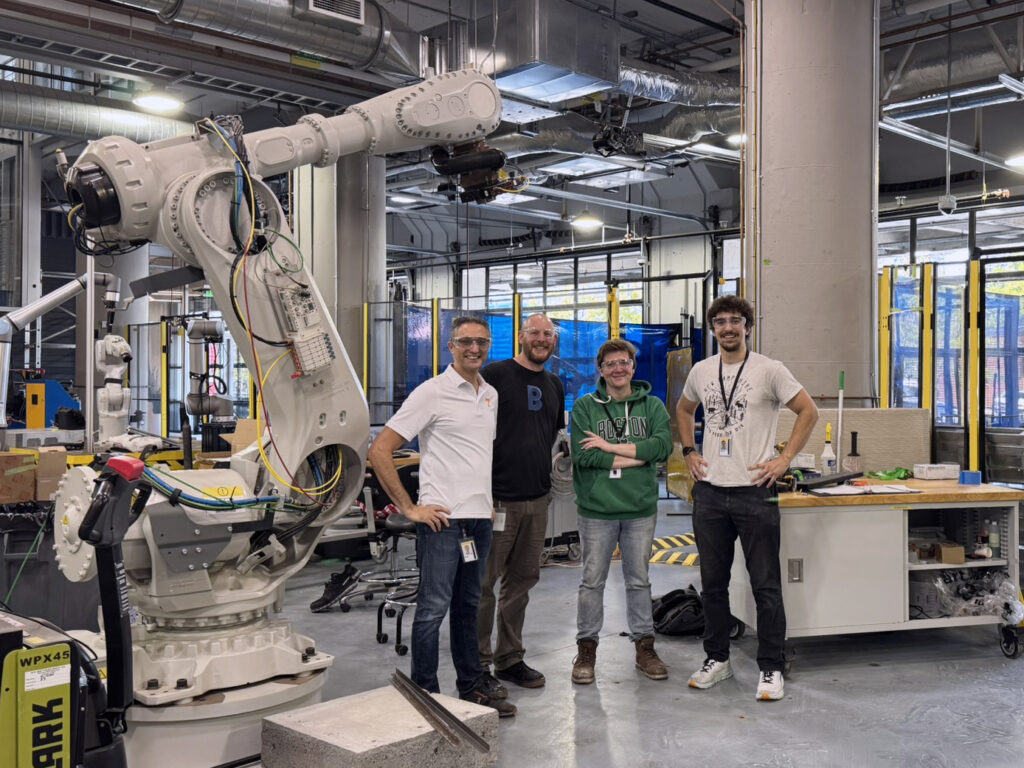The future of advanced materials and manufacturing is being shaped by University of Tennessee (UT) researchers who see beyond the lab, translating innovative discoveries into solutions for industry, healthcare, infrastructure and beyond.

Advanced materials are specifically designed to possess new or improved properties compared to traditional materials used to perform the same function. Many of these take the form of composites—materials made by laying or adding materials to achieve properties no single material could offer on its own. Carbon fiber composites, for example, are stronger than steel yet far lighter, enabling fuel-efficient vehicles, advanced medical devices and durable infrastructure.
When it comes to advanced materials research, few see further beyond the lab than Uday Vaidya, UT–Oak Ridge Innovation Institute (UT-ORII) Governor’s Chair in Advanced Composites Manufacturing and UT Knoxville (UTK) professor in the Tickle College of Engineering.
Since joining UTK in 2015, Vaidya has worked with UTRF to secure multiple patents, published extensively and mentored dozens of students. He was also recognized as the 2024 Innovator of the Year by the UT Research Foundation (UTRF) for his significant contributions to research commercialization at UT. Vaidya is creating a pipeline where research doesn’t stop at discovery, it becomes the foundation for patents, industry partnerships and startups.
A Mentor Who Inspires Entrepreneurs
Under Vaidya’s guidance, multiple graduate students have launched startup companies focused on creating composite materials for a variety of applications with support from UTRF and programs like the Spark Cleantech Accelerator at the UT Research Park and the Chancellor’s Innovation Fund at UTK.
- Endeavor Composites (Hicham Ghossein) – Scaling carbon fiber nonwoven technology that reduces waste and meets lightweighting needs in automotive and aerospace industries.
- Elemental Composites (Vinit Chaudhary) – Developing scalable, eco-friendly nonwoven mats from recycled and natural fibers for industries ranging from automotive to medical devices.
- Vitriform3D (Alex Stiles) – Turning discarded glass into fire-resistant, 3D-printed cladding with a fraction of the carbon footprint of traditional materials.
- ThermaMatrix (Ryan Spencer) – Commercialized an optical inspection technology for rapid defect detection in composites.
“UTRF has been a central outlet for all the ideas we are coming up with or developing with industry,” said Vaidya. “Their setup is very open to listening to everything you’re doing, and they’re proactive—intellectual property filings, provisional patents, the whole works.”
Design Meets Engineering

While Vaidya and his former graduate students work pushes the boundaries of composites engineering, Maged Guerguis, associate professor in the UTK College of Architecture and Design and director of the Soft Boundaries Laboratory, complements their innovations from the design side.
Guerguis has spent nearly two decades exploring the intersection of architecture and advanced manufacturing materials research. He first came to UT through a collaboration with the Oak Ridge National Laboratory and Skidmore, Owings & Merrill on the AMIE project—the world’s largest 3D-printed building enclosure at the time, capable of wirelessly sharing energy with a 3D-printed vehicle.
“Creating curved and aerodynamic forms is difficult with traditional construction. Additive manufacturing makes this possible in an efficient way, creating complex shapes while cutting waste and energy use” says Guerguis.
From Face Shields to Prefab Construction
During COVID-19, the Tennessee Higher Education Commission made a call for 10,000 headbands for face-shields to protect healthcare workers.
Stepping up to the call, Guerguis designed the UT-Face Shield that provided protection and comfort. He collaborated with Vaidya to manufacture them. “We ended up making a design model for injection mold,” says Guerguis. Together, their teams created an ergonomic, injection-molded face shield that was mass-produced in seconds and distributed across all five UT campuses.
During this partnership, Vaidya introduced Guerguis to UTRF, which guided him through his first patent application for the UT-Sheild. Today, Guerguis is the founder of OTTO Prefab, a research-driven design construction platform exploring new ways to integrate automation and fabrication into sustainability practices.
“OTTO Prefab is focusing on streamlining construction without compromising design quality or performance,” says Guerguis.
“Traditional construction is familiar for builders but often slow, wasteful, labor-intensive, and unable to meet today’s energy and sustainability demands. It contributes hundreds of millions of tons of waste each year,” says Guerguis.
With rising housing demands, tightening energy codes, and a growing labor shortage, the construction market urgently needs scalable prefab solutions. To meet these needs, OTTO Prefab delivers high-performance, robotically fabricated wall panels that cut build time, reduce labor, and improve energy efficiency. They also help address the unpredictability of construction costs by providing standardized, repeatable components. These panels combine structure, insulation, and moisture barriers, with built-in chases for HVAC and MEP systems, accelerating construction for ADUs, single-family homes, and beyond.

“To design the wall panel, OTTO leverages advanced computational design methods, including topology optimization, where “material is applied only where structural demands are highest,” says Guerguis. “This approach can reduce material usage by up to 40 percent, similar to results seen in aerospace and automotive industries. These optimized forms can be manufactured efficiently with technologies like 3D printing” he adds.
Supported by UTRF through patents, a maturation grant, and entry into the Spark Cleantech Accelerator, Guerguis is now learning the business side of innovation. “At the end of the day, I’m a professor, not an entrepreneur,” he says. “UTRF’s support has been unwavering,” he adds.
A Hidden Gem for Innovation
Both Vaidya and Guerguis are examples of Tennessee’s unique ecosystem—UT, ORNL, IACMI, UTRF, and the UT Research Park—as a hidden gem for innovation.
“UT, Oak Ridge National Lab, and the local culture of the makers here in Knoxville form a strong, collaborative system,” Guerguis says. It’s inspiring—everyone supports each other, and together we can tackle the world’s greatest challenges.”
Together, these researchers and entrepreneurs are proving that advanced materials and composites are more than an academic pursuit—they are a cornerstone of Tennessee’s innovation economy.